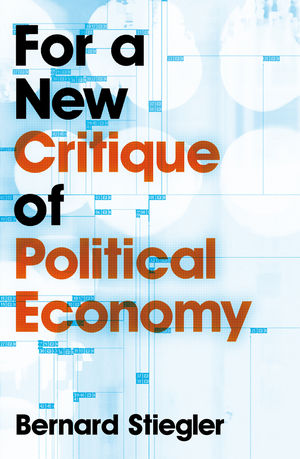John Zerzan, Alice Carnes (eds.): Questioning Technology: Tool, Toy or Tyrant? (1991)
Filed under book | Tags: · artificial intelligence, communication technology, computing, critique, history of technology, marxism, silicon valley, technology

“The rich array of commentators in this anthology looks at the way technology is waven into the fabric of our lives, and asks: is this what we really want? Questioning Technology is sharp, eloquent, and provocative.
Some of the writers fully intend to shake us up. Russell Means’ essay “Fighting Words on the Future of the Earth” is an inspired case in point. Some suggest solutions: Carolyn Merchant’s “Death of Nature” advocates a restructuring of our priorities in favor of decentralization, “soft” and labor-intensive technologies, and simpler lifestyles. All the contributors face the consequences of our technology-dependency unflichingly and often wittily.
Questioning Technology is an impassioned plea for us to think before we act – and to know that we can, if we want to, ‘unplug ourselves.'”
Publisher New Society Publishers, Philadelphia, PA, Santa Cruz, CA, and Gabriola Island, BC, 1991
ISBN 0865712042, 9780865712041
222 pages
PDF (no OCR; updated on 2012-8-4)
Comment (0)Bernard Stiegler: For a New Critique of Political Economy (2010)
Filed under book | Tags: · consumption, critique, economy, labour, marxism, philosophy, political economy, politics, society, technics

“The catastrophic economic, social and political crisis of our time calls for a new and original critique of political economy – a rethinking of Marx’s project in the very different conditions of twenty-first century capitalism.
Stiegler argues that today the proletarian must be reconceptualized as the economic agent whose knowledge and memory are confiscated by machines. This new sense of the term ‘proletarian’ is best understood by reference to Plato’s critique of exteriorized memory. By bringing together Plato and Marx, Stiegler can show how a generalized proletarianization now encompasses not only the muscular system, as Marx saw it, but also the nervous system of the so-called creative workers in the information industries. The proletarians of the former are deprived of their practical know-how, whereas the latter are shorn of their theoretical practice, and both suffer from a confiscation of the very possibility of a genuine art of living.
But the mechanisms at work in this new and accentuated form of proletarianization are the very mechanisms that may spur a reversal of the process. Such a reversal would imply a crucial distinction between one’s life work, originating in otium (leisure devoted to the techniques of the self), and the job, consisting in a negotium (the negotiation and calculation, increasingly restricted to short-term expectations), leading to the necessity of a new conception of economic value.
This short text offers an excellent introduction to Stiegler’s work while at the same time representing a political call to arms in the face of a deepening economic and social crisis.”
Publisher Polity, 2010
ISBN 0745648045, 9780745648040
100 pages
PDF (updated on 2020-8-7)
Comment (0)Adorno, Benjamin, Bloch, Brecht, Lukács: Aesthetics and Politics (1977/1980)
Filed under book | Tags: · 1930s, 1940s, 1950s, aesthetics, art, marxism, politics

The most remarkable aesthetic debates in European cultural history, with an afterword by Fredric Jameson.
No other country and no other period has produced a tradition of major aesthetic debate to compare with that which unfolded in German culture from the 1930s to the 1950s. In Aesthetics and Politics the key texts of the great Marxist controversies over literature and art during these years are assembled in a single volume. They do not form a disparate collection but a continuous, interlinked debate between thinkers who have become giants of twentieth-century intellectual history.
by Theodor Adorno, Walter Benjamin, Ernst Bloch, Bertolt Brecht, and Georg Lukács
Afterword by Fredric Jameson
First published in 1977
Publisher Verso, London, 1980
ISBN 860917223, 902308386
221 pages
PDF (updated on 2020-12-10)
Comments (4)
